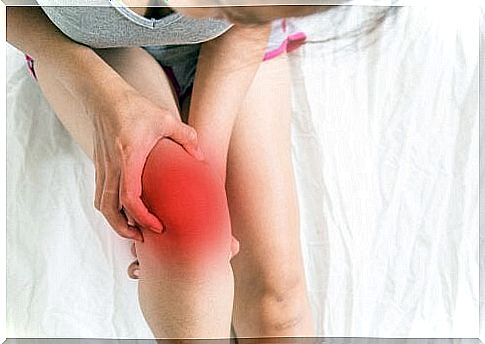The Relationship Between Rheumatism And Negative Emotions

Rheumatism is a disease that can affect all joints in the human body. It causes very unpleasant symptoms, such as persistent pain, inflammation, reduced mobility and stiffness in the affected areas. No one really knows what causes it. However, there is research that points to the relationship between the development of rheumatism and negative emotions.
Psychology became important in the studies around this disease already at the beginning of the last century. However, no one took it very seriously until the 50’s. That year, rheumatism was classified as one of the most important psychosomatic diseases. Since then, a lot of research has been done in the field.
In this article, we will talk about everything we know about the relationship between rheumatism and negative emotions. We can also dig deeper into the main characteristics of this disease. In addition , we will give some advice on how to better coexist with it.
The symptoms occur in the main joints of the body. The hardest hit are the joints in the fingers and hands. However, rheumatism can occur anywhere in the body where two or more bones meet.

It is possible to find symptoms of rheumatism in the following areas:
- Elbows
- Knees
- Shoulders
- Neck
- Jaw
- Ankle
- Feet
- Hips
The symptoms of the disease largely depend on the person suffering from the disease. However, the most common symptoms are swelling, lack of mobility, a burning sensation, hypersensitivity and pain. We take a closer look at each symptom.
The first symptom of rheumatism is often swelling in the affected joint. It can be aggravated due to the severity of each case. When this disease is not serious, the swelling may decrease on its own. Normally, the swelling is accompanied by pain in more severe cases.
In general, it is more difficult to move our joints if they increase in size. When the symptoms become severe, the person may find it difficult to perform certain activities as a result of the swollen joints.
Symptoms of rheumatism are often accompanied by an unpleasant burning sensation in the affected areas. In most cases, this represents only a slight discomfort. Together with the others, however, it can be a burden.
In addition to the other symptoms we are talking about, people with rheumatism can also suffer from increased sensitivity in the affected joints. This also causes more pain.
The worst symptom that people with rheumatism describe is severe pain every time they perform specific movements. They may also feel pain when they receive the slightest shock to an affected joint. The thing is, the pain can be so difficult to live with that it can prevent the victim from living a normal life.

We have shown what the disease is about and their symptoms. But what is their relationship to negative emotions? Recent research shows that certain emotional states can aggravate the problematic symptoms of this disease. They also increase a person’s risk of developing rheumatism at all.
Of all the emotions that we are capable of, the ones that are most related to this disease are depression, anxiety and anger. Conversely, traits such as efficiency or resilient personality normally suffer from less severe symptoms.
The reality is that there is no known cause for this disease. However, the relationship between rheumatism and negative emotions is well documented. This is why many doctors choose to work on their patients’ emotional and psychological levels. Due to the findings, they believe that it is the best treatment for rheumatism.
Doctors believe that when patients with rheumatism work on their emotional expression and compassion, their symptoms improve. Although the symptoms do not go away completely for the most part, many patients have found that exercising their emotions and being more self-aware has significantly improved their lives.
That is why it is important to have the right management mechanisms to deal with this disease. If you are suffering from the symptoms we discussed in this article, or if you know someone who does, do not hesitate to go to a mental health specialist. A good therapist can help you deal with even the most acute symptoms of this disease.








